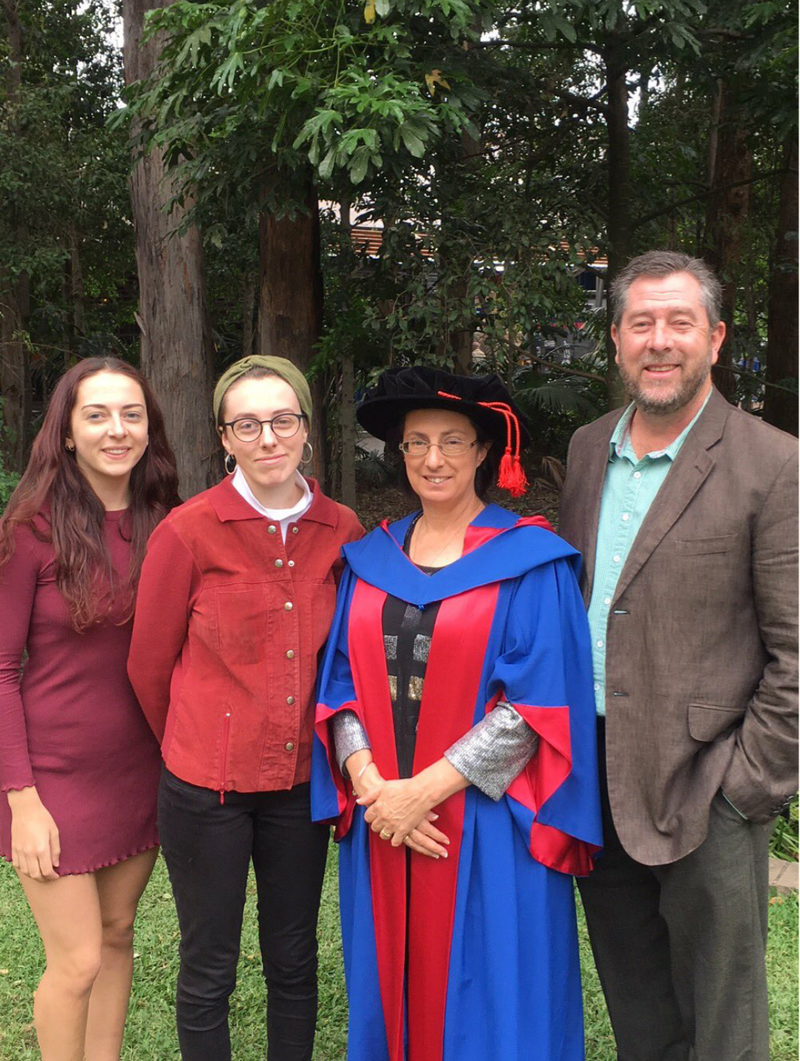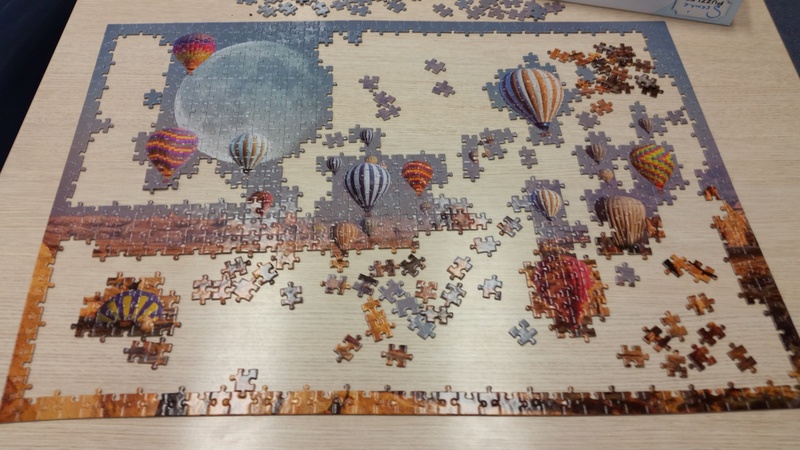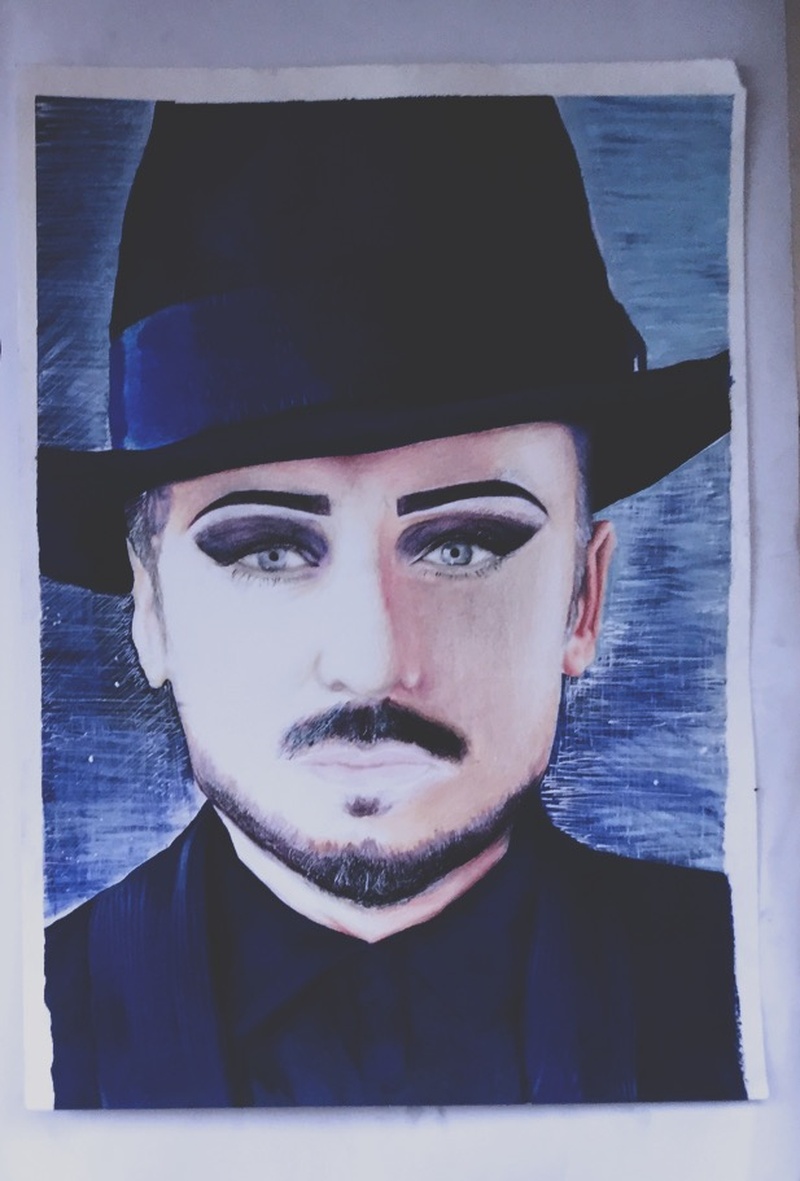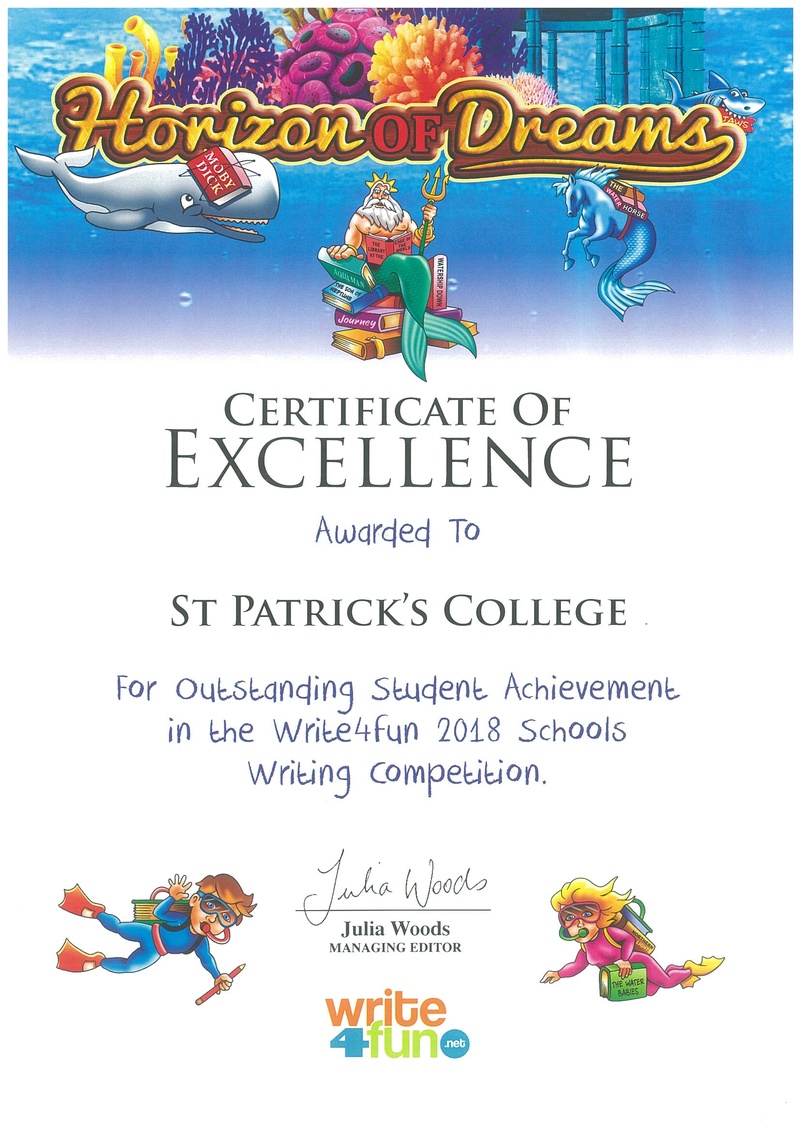Hello from the Library
Congratulations Dr Bourne
The library is very excited to share the news that Debra Bourne recently graduated from the University of Wollongong. She was awarded a Doctor of Philosophy (PhD) in Education. Dr Bourne’s Thesis was entitled An investigation of senior secondary school teachers’ experiences of integrating information and communication technologies (ICT) into teaching and learning in the era of Australia’s Digital Education Revolution. The reseach focused on the knowledge that teachers use when they use ICTs to support teaching and learning.

Congratulations Doctor Bourne
The library is currently a hive of activity: running Book Club, Chess Club, Makerspace, Anime Club, J-Pop and K-Pop, as well as Technology Club. Makerspace are currently working on bracelet weaving under the direction of Ms Tanginoa, whilst Technology Club have the challenge of programming a sphero to dance and flash to a chosen piece of music.
When not researching, reading or being involved in the other library activities, many students choose to unwind by way of adding colour to our collaborative mosaic, contributing to the ever-growing jigsaw puzzle, or by working on their own artwork. Jadyn B and Georgia C have been working on their beautiful artworks.
Write4Fun is an Australia wide, primary and secondary writing competition. In 2018, over 10,000 entries have been received and St Patrick’s has been recognised for outstanding writing, with at least 10 students successfully progressing past the initial judging stage. We wish those students good luck as we eagerly await the final judging on 23 May.
Indigenous Literacy Week Book Swap
The library will be holding a book swap during week 6 of this term. It will run from Monday 28 May to Friday 1 June, during Reconciliation Week, and the goal is to raise $1,000 for the Indigenous Literacy Foundation. Students may take any book they like for a gold coin donation.
The Indigenous Literacy Foundation is a nationwide book industry charity whose purpose is to decrease the level of disadvantage experienced by children living in remote Indigenous communities throughout Australia. They aim to achieve this through improving literacy levels and instilling a love for reading. This year, the Indigenous Literacy Foundation aims to raise $300,000 through the Great Book Swap in order to purchase 30,000 new books for those living in remote Indigenous communities.
We encourage anyone who has any pre-loved books of reasonable quality to donate them to the book swap. It is for a great cause as we aim for that $1000 mark. Anyone who wishes to donate books can bring them to the library.
STUDY SKILLS HANDBOOK
What do you do when you get a disappointing assignment mark?
We all have times when we think we have done brilliantly then get an assignment back and are really disappointed instead. You could just feel really bad, or you could try these steps:
REVIEW AND UNDERSTAND
The first step is to work through the feedback and work out what went wrong.
- Did you not meet the criteria?
- What feedback were you given from the teacher?
- Do you understand the feedback?
- Can you work out why you got the mark you did?
If you don’t understand why you got the mark you did, it is ESSENTIAL you ask your teacher for further clarification. Otherwise you will keep making the same mistakes.
CHALLENGE OR ACCEPT
Once you understand what the issue was, you can either accept it, or challenge it.
ACCEPT: If you feel now that the mark was actually fair enough, then it is time to move on. There is no point beating yourself up anymore about your disappointing mark. Instead you need to treat this as a learning process. The people who are most successful in life don’t let their mistakes get them down, they see them as a learning opportunity where they can improve and make sure it doesn’t happen again.
However, if you really think your mark was unfair and you had met all of the criteria, you can talk to your teacher and politely explain your point of view and ask if they would reconsider your mark.
LEARN AND CHANGE
The only way to improve, is to work out what you did wrong, then try to fix it. It is actually a really good idea to re-do part of the work and re-submit. Not everyone has the commitment to do this, but if you do - then wow - you will really see the benefit in your results. It might just be a case of re-doing a section of the assignment and asking your teacher to review it. But if you don’t have another go, you won’t know whether or not you have really taken the feedback on board. Some students let a bad mark get them down and start to think they are not capable of succeeding, so they don’t try to address the issue, make similar mistakes again and just feel worse. Don’t be that sort of person! Learn from what you have done and have another try.
Another good thing you can do is to ask to see other students’ work who received top grades for their assignments - to evaluate what was missing in yours or how you could improve yours next time. It would also be a great idea for your next assignment to show your teacher a plan, or a draft early on, explaining how you think you’ve met the criteria, and seek feedback well BEFORE handing it in.
From the College Library




